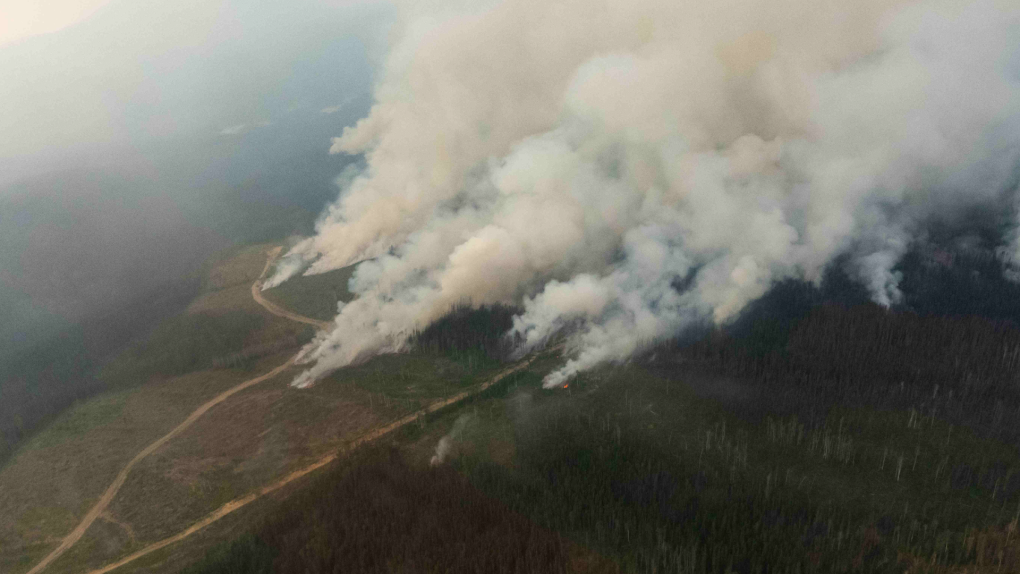The British Columbia government says military support is arriving for deployment after the province asked for Ottawa’s help in fighting hundreds of wildfires.
The Ministry of Emergency Management says two Canadian Armed Forces reconnaissance teams were being deployed today, including a “land force team” headed for Prince George and an air force team bound for Kamloops.
A statement from the ministry says the teams are conducting assessments that will inform deployment plans for additional federal resources.
It says a working group with members of Public Safety Canada, the military and B.C. emergency management and wildfire officials are also set to meet Monday.
With around 380 wildfires burning in B.C. the Canadian Interagency Forest Fire Centre says the province has the greatest number of blazes across the country.
The number of highly visible, threatening or potentially damaging blazes has ticked up to 23, and there were more than 70 wildfire-related evacuation alerts or orders on Sunday, with many clustered in several regions of B.C.’s central Interior.
The Cariboo Regional District issued an order this weekend covering 38 parcels of land in a 160-square- kilometre area around Anahim Peak, northeast of Bella Coola.
That’s on top of an order issued Friday spanning nearly 3,340 square kilometres in the Lhoosk’uz area, west of Quesnel, and several others in the area.
The Regional District of Bulkley-Nechako, meanwhile, rescinded an evacuation order in response to the Big Creek wildfire on Sunday. Residents of a remote area that includes Omineca Provincial Park may return home after more than two weeks away, although they remain subject to an alert and must be ready to leave immediately.
The Peace River Regional District also cancelled an evacuation alert covering 60 properties due to the Donnie Creek blaze, the largest in B.C.’s history.
The alert had spanned a lengthy stretch of Highway 97, along with properties in a remote area north of Fort St. John, for more than two weeks.
Environment Canada continued to warn of smoky skies and reduced visibility throughout central and eastern B.C. on Sunday, while maintaining severe thunderstorm bulletins for a swath of the central Interior throughout the day.
Canada’s record-breaking wildfire season has now seen 100,000 square kilometres of land scorched, an area equal to roughly the size of Lake Ontario, Lake Erie and Lake Michigan combined.
Fueling the fire, the Canadian Drought Monitor shows vast areas are considered “abnormally dry,” with several pockets of “extreme drought” in B.C. and Alberta.
B.C.’s drought bulletin shows more than half of the province is classified at drought Level 4 of five or higher, meaning harm to ecosystems and communities is likely.
Four of the 34 basins the province monitors are ranked at the most severe level of drought, meaning adverse impacts are almost certain. That includes all of Vancouver Island, the Bulkley-Lakes basin and the Fort Nelson basin.
This report by The Canadian Press was first published July 16, 2023.




















Discussion about this post